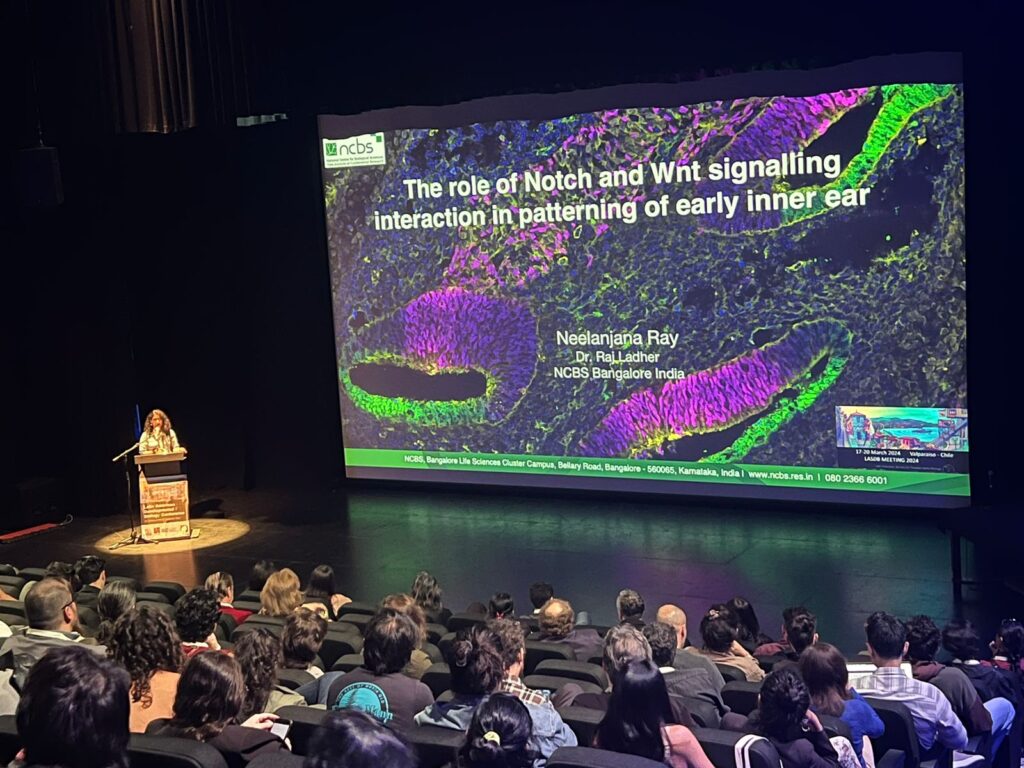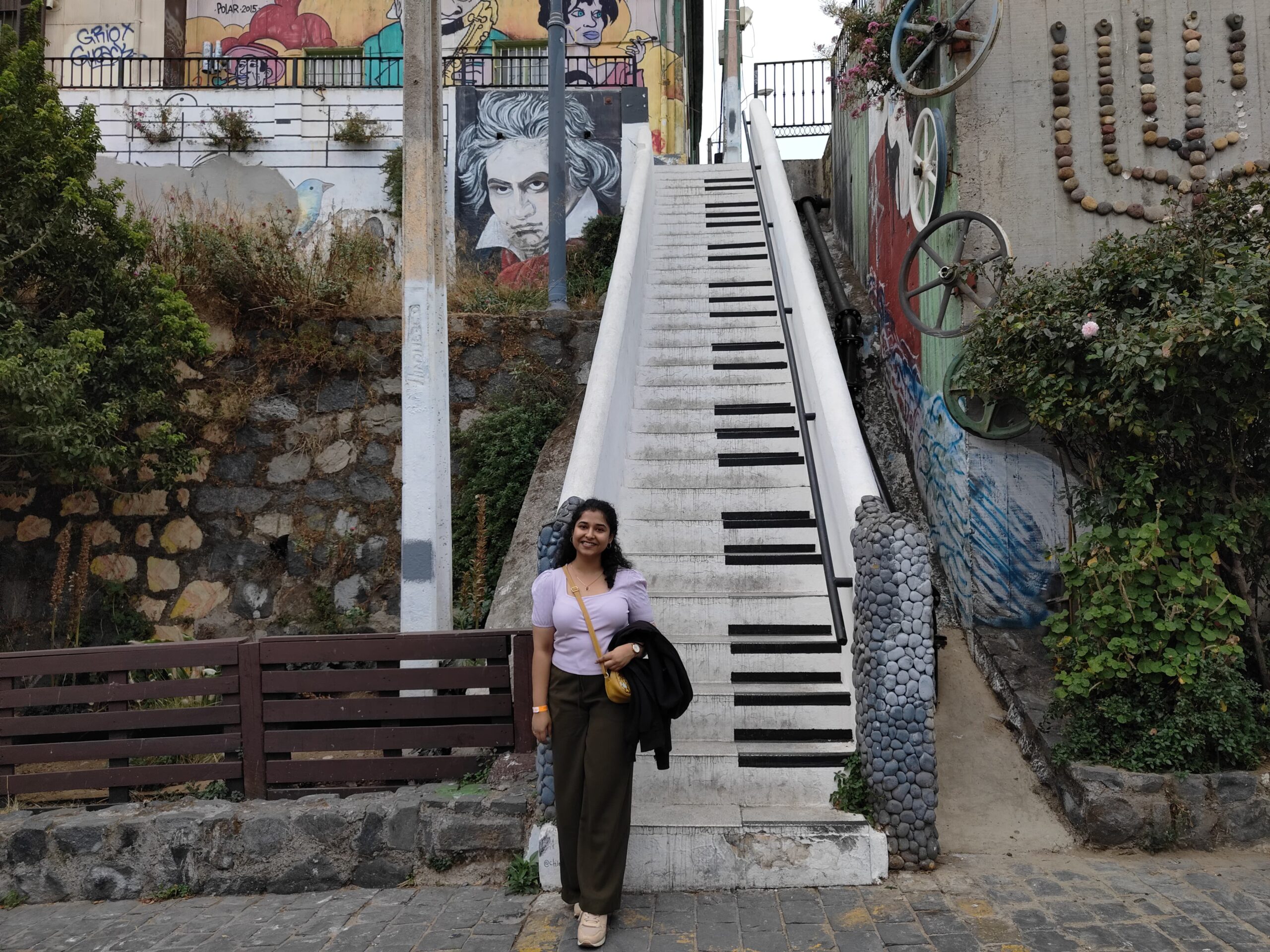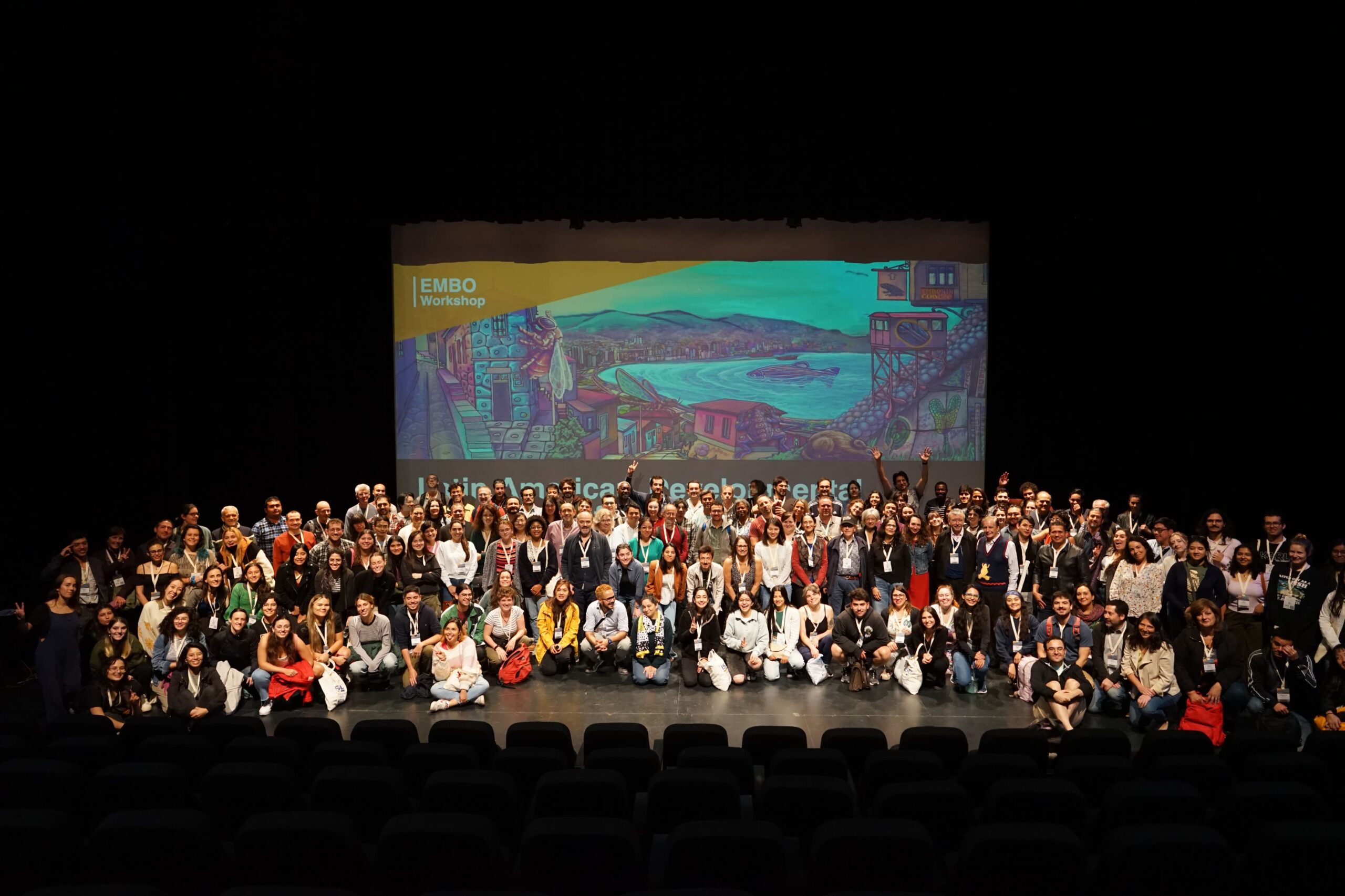This interview is with Neelanjana Ray, who won the best oral presentation award at the LASDB meeting in Chile. Neelanjana is a graduate student at the National Centre for Biological Sciences. She looks at the workings of inner ear development in the lab of Dr. Raj Ladher.
Hello, Neelanja! To start with, could you tell us a bit about the meeting you attended?
The conference was organized by the Latin American Society for Developmental Biology, along with the Chilean Society for Developmental Biology and the International Society for Differentiation. The conference happened after a break due to COVID. A pool of developmental biologists from the Latin American countries were there. The meeting was attended by many young PIs and senior distinguished scientists like Richard Behringer, Marianne Bronner, Josh Brickman, Roberto Mayor, Alfonso Martinez Arias, and James Briscoe to name a few.
What was your experience at the conference like?
This was the first time I went outside India. And that too, I decided to go to the other side of the Earth! I had to take three flights, and it was a long journey. On the first day of the conference, I was missing my lab a little too much. Others had come with their lab members. But soon, I made friends there. We were given shared bedrooms, and I became friends with my roommate, Cecilia Arriagada. She’s a young PI at the University of San Sebastian, Santiago, and joined just a couple of months back. It was really nice talking to her about how starting a lab and being a young PI is. I also met a lot of people. We had interesting conversations about work and education in Chile and a lot of political discussions. Since both Chile and India were colonies, we could associate a lot of our histories. And of course, I met a lot of fantastic researchers. As a fresh graduate student, I used to read the papers of Marianne Bronner and was looking forward to meeting her. I talked to her during one of the dinners-she was extremely sweet, and we talked about women in STEM. There was also Roberto Mayor, who was extremely enthusiastic to talk about science.
I noticed that you were the only person to give a talk from the South Asian countries. What was that like?
Yes, I was. It was intimidating because, oh my God, the screen was huge! This was my first talk ever, and that too, it was an international talk. I had not given a talk about my work anywhere before, which was why I was a little intimidated at first. But then, it is only scary until you stand on the stage. Once you’re there, the train has left the platform, and you just have to give your talk now.

And you got the best oral presentation award too! That must’ve been a good feeling!
Yes, it really was. I did not expect to get it. Firstly, I did not know that there was a prize for short talks and got to know only when they were handing out awards. When Roberto Mayor was announcing it, he said, “Pardon me if I pronounce this name incorrectly,” and I thought to myself, “My name is also difficult to pronounce.” And then he called out my name! It was a great feeling.
Congratulations! This surely is a big win.
Tell us about your PhD work that got you the award. What is your focus on?
I work on the early development of the inner ear. The inner ear has different kinds of cells. Some are sensory, and others, non-sensory. The fate of these cells, I,e; which cells in an embryo get specified to a particular type, gets determined during development. However, there are pre-specified domains in the inner ear; meaning some areas are already determined to develop into a particular lineage. Here, one specific area becomes the sensory lineage and the other becomes the non-sensory lineage.
The sensory cells are marked with the protein SOX2, while the nonsensory cells, with LMX1a. Now, another key player in this whole process is the notch signaling. Notch proteins play a major role in the regulation of embryonic development. When we remove notch(1) receptor or ligands, we do not see SOX2 expression. This means that notch is somehow involved in the expression of SOX2. Things get more interesting now: there is yet another protein, RBPJ, which is necessary for notch signaling. But in early inner ear development, we see SOX2 expression even without RBPJ. This means that SOX2 expression is dependent on notch signaling but does not follow the canonical notch pathway. My work is to understand this signaling pathway that does not involve RBPJ.
Now, in the non-sensory domain, we do not know what causes LMX1a expression. But we think that Wnt, yet another protein crucial in development, specifies the non-sensory part. The crosstalk between these two regions and between LMX1a and SOX2 specifies the boundary between the sensory and non-sensory parts. I use mouse models and knock out different components of these two – Wnt and notch – signaling pathways to figure out this crosstalk and answer questions like where the sensory region ends and the nonsensory region starts, and how this pattern forms.
What happens to the boundary region in these knockout mutants?
SOX2 and LMX1a are proteins that are expressed mutually exclusive. They are not expressed in the same cell. However, in RBPJ mutants, we see that the cells in the boundary region express both these proteins, which tells us that the boundary region is not being maintained well. Now, even though SOX2 expression is independent of RBPJ, we think that RBPJ has some role in maintaining the boundary.
Did you get feedback on your work at the conference?
A lot of feedback. I met Alfonso Martinez Arias. He’s a big advocate of the Notch and Wnt interaction. So he was very happy with my work. He gave me a lot of suggestions and told me that I was doing something important. Others were also very encouraging. At times in your PhD, you do feel lost. It’s not going to be like when you join a PhD. As a first-year student, you come in with hopes of doing something groundbreaking. But then, as years go by, your perspective changes. Even if there’s a small knowledge gap that my work fills, that is fine. So, getting validation from people who have done so much work throughout their lives meant a lot.
That’s really nice to hear. Apart from the oral presentation award, I heard that you were also awarded a travel grant.
Yes. I got a travel grant from ISD, which covered my flights and accommodation. The flights were expensive, so one scholarship was not enough! I also got the Infosys Foundation Grant, and both of these together helped me cover the travel cost.
Congratulations on all the awards!
Apart from the conference, did you get to explore the city? What was it like?
Yes! The conference venue was a former prison. There are still parts of the prison that are conserved. There were a lot of uphill walks to reach the venue. It was useful to burn all the calories from the wine and the cheese! Valparaiso is a very old port city. The city has a lot of Spanish and European architecture. There are murals everywhere, and every nook and cranny has a small shop where an artist can be seen painting. I ate a lot of Ceviche, which is a seafood dish. I’m a Bengali, so I loved it! I did not know the language, and I was alone. But I somehow managed by using Google Translate. But the people there were really nice. When I went to shops, the owners translated ‘thanks for coming’ and ‘hope you had a nice day’. That was really sweet.

That’s wonderful to hear. As we wrap up, are there any final insights that you would like to share with us?
A lot of people told me that I was going so far and that it was scary going alone to an unknown place. But, you just have to be brave and step out. Meeting new people can be initially intimidating, but at the end of the day, you’re talking to people about the work you do and it feels good to know that a few more people know about my work now. As I said, I was missing my lab initially, but then my lab mate messaged me saying that it’s good that none of us were there because now you are forced to talk to others. That was true.
As soon as I got the certificate, I sent the photo to Raj, my PI, and he said he was proud of me. That was the biggest validation for me. So yeah, I had a great experience overall.

—
You can connect with Neelanjana here.







